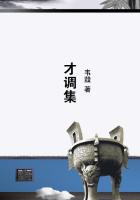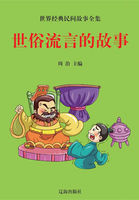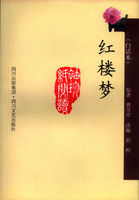In New York there are street omnibuses as we have--there are street cars such as last year we declined to have, and there are very excellent public carriages; but none of these give you the accommodation of a cab, nor can all of them combined do so. The omnibuses, though clean and excellent, were to me very unintelligible. They have no conductor to them. To know their different lines and usages a man should have made a scientific study of the city. To those going up and down Broadway I became accustomed, but in them I was never quite at my ease. The money has to be paid through a little hole behind the driver's back, and should, as I learned at last, be paid immediately on entrance. But in getting up to do this I always stumbled about, and it would happen that when with considerable difficulty I had settled my own account, two or three ladies would enter, and would hand me, without a word, some coins with which I had no life-long familiarity, in order that I might go through the same ceremony on their account. The change I would usually drop into the straw, and then there would arise trouble and unhappiness. Before I became aware of that law as to instant payment, bells used to be rung at me, which made me uneasy. I knew I was not behaving as a citizen should behave, but could not compass the exact points of my delinquency. And then, when I desired to escape, the door being strapped up tight, I would halloo vainly at the driver through the little hole; whereas, had I known my duty, I should have rung a bell, or pulled a strap, according to the nature of the omnibus in question. In a month or two all these things may possibly be learned; but the visitor requires his facilities for locomotion at the first moment of his entrance into the city. I heard it asserted by a lecturer in Boston, Mr. Wendell Phillips, whose name is there a household word, that citizens of the United States carried brains in their fingers as well as in their heads; whereas "common people," by which Mr. Phillips intended to designate the remnant of mankind beyond the United States, were blessed with no such extended cerebral development. Having once learned this fact from Mr. Phillips, I understood why it was that a New York omnibus should be so disagreeable to me, and at the same time so suitable to the wants of the New Yorkers.
And then there are street cars--very long omnibuses--which run on rails but are dragged by horses. They are capable of holding forty passengers each, and as far as my experience goes carry an average load of sixty. The fare of the omnibus is six cents, or three pence. That of the street car five cents, or two pence halfpenny.
They run along the different avenues, taking the length of the city. In the upper or new part of the town their course is simple enough, but as they descend to the Bowery, Peck Slip, and Pearl Street, nothing can be conceived more difficult or devious than their courses. The Broadway omnibus, on the other hand, is a straightforward, honest vehicle in the lower part of the town, becoming, however, dangerous and miscellaneous when it ascends to Union Square and the vicinities of fashionable life.
The street cars are manned with conductors, and, therefore, are free from many of the perils of the omnibus; but they have perils of their own. They are always quite full. By that I mean that every seat is crowded, that there is a double row of men and women standing down the center, and that the driver's platform in front is full, and also the conductor's platform behind. That is the normal condition of a street car in the Third Avenue. You, as a stranger in the middle of the car, wish to be put down at, let us say, 89th Street. In the map of New York now before me, the cross streets running from east to west are numbered up northward as far as 154th Street. It is quite useless for you to give the number as you enter. Even an American conductor, with brains all over him, and an anxious desire to accommodate, as is the case with all these men, cannot remember. You are left therefore in misery to calculate the number of the street as you move along, vainly endeavoring through the misty glass to decipher the small numbers which after a day or two you perceive to be written on the lamp posts.
But I soon gave up all attempts at keeping a seat in one of these cars. It became my practice to sit down on the outside iron rail behind, and as the conductor generally sat in my lap I was in a measure protected. As for the inside of these vehicles the women of New York were, I must confess, too much for me. I would no sooner place myself on a seat, than I would be called on by a mute, unexpressive, but still impressive stare into my face, to surrender my place. From cowardice if not from gallantry I would always obey; and as this led to discomfort and an irritated spirit, Ipreferred nursing the conductor on the hard bar in the rear.
And here if I seem to say a word against women in America, I beg that it may be understood that I say that word only against a certain class; and even as to that class I admit that they are respectable, intelligent, and, as I believe, industrious. Their manners, however, are to me more odious than those of any other human beings that I ever met elsewhere. Nor can I go on with that which I have to say without carrying my apology further, lest, perchance, I should be misunderstood by some American women whom Iwould not only exclude from my censure, but would include in the very warmest eulogium which words of mine could express as to those of the female sex whom I love and admire the most. I have known, do know, and mean to continue to know as far as in me may lie, American ladies as bright, as beautiful, as graceful, as sweet, as mortal limits for brightness, beauty, grace, and sweetness will permit. They belong to the aristocracy of the land, by whatever means they may have become aristocrats. In America one does not inquire as to their birth, their training, or their old names. The fact of their aristocratic power comes out in every word and look.















